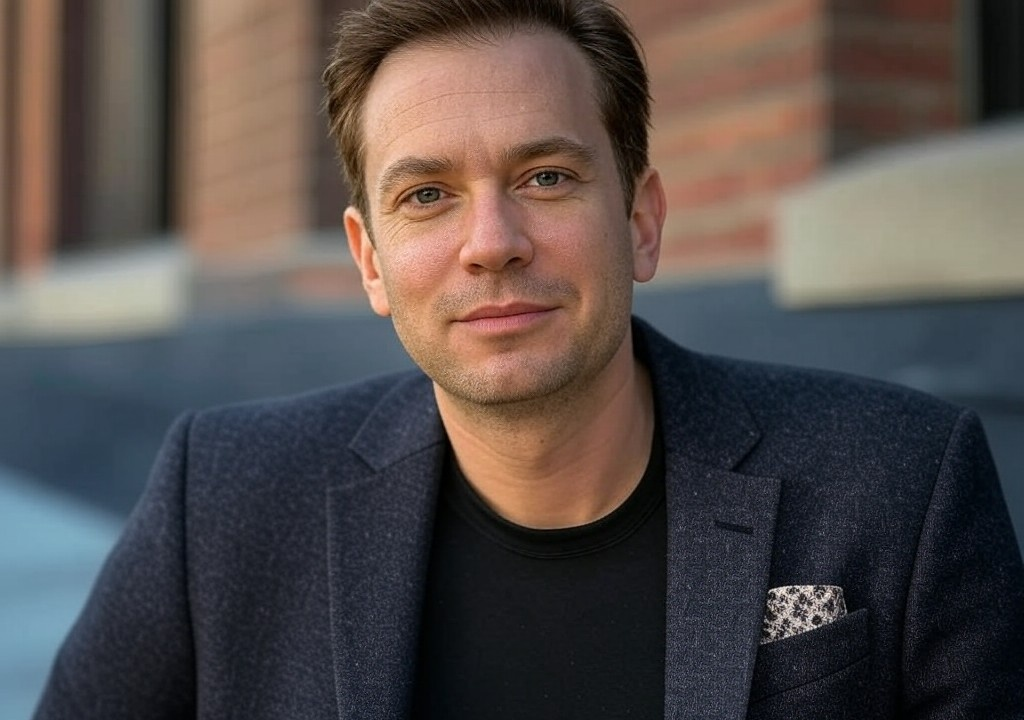It started, as life-changing friendships often do, with a fight over the last slice of pizza. I was 19, freshly transplanted to Yale, and naively convinced that my knowledge of Dostoevsky and ability to quote obscure 90s rap lyrics gave me an edge in adult socializing. Enter Marcus—sharp-tongued, perpetually underdressed for New Haven winters, and irreverently hilarious. He sized me up with the kind of smirk that could simultaneously disarm you and make you check your ego. And just like that, over a greasy slice of pepperoni, we became friends.
Marcus wasn’t the type you’d confide in immediately. He wasn’t particularly cuddly or overly invested in emotional hand-holding. No, Marcus was more of the “brutal honesty wrapped in an Eddie Murphy-level of comedic timing” brand of friend. He had this uncanny ability to look at your carefully curated façade and casually dismantle it with surgical precision.
But here’s the thing about those rare friends who refuse to let you wallow in your own curated nonsense: they change your life. Here's how Marcus did just that.
Section 1: The Call-Out Artist We All Need
It was during one of my earliest post-college heartbreaks that Marcus earned his unofficial title: The Patron Saint of Brutal Honesty. I was spiraling—stuck in this self-important loop of “Wasn’t I amazing enough for her?” and “How could she end this with me?” Marcus took one look at me, sighed dramatically, and said something I’ll never forget: “Julian, she didn’t leave because you weren’t amazing. She left because you’re exhausting.”
Ouch. Let it marinate for a moment.
But he wasn’t wrong. At first, I wanted to defend myself. But then I realized Marcus didn’t mean it as a dig. He was holding up a mirror to my “I’m-a-budding-literary-genius” vibe—the late-night monologues about Nabokov, paired with the fact that I occasionally forgot to ask what her favorite book was. It wasn’t criticism for sport; he was pointing out something real. And unlike those friends who soothe your ego with platitudes, Marcus believed in the power of discomfort-as-growth.
We all need that Marcus energy in our lives: the friend who calls your bluff and urges you to get real with yourself. It stings, sure, but it’s also the antidote to stagnation. If someone’s got the courage to tell you the truth, hold on to them.
Section 2: The Art of Not Taking Yourself So Seriously
To fully understand Marcus’ transformative role in my life, you need to know about the Great Karaoke Debacle of 2011. Picture this: Wednesday night at some dimly lit dive bar, me with a carefully curated whiskey sour in hand (peak pretension), staring at a screen as Marcus shoved a mic in my direction.
“Fleetwood Mac. 'Dreams.' Go.”
“Absolutely not,” I said, as if the very concept of karaoke would compromise my literary dignity.
Marcus grinned, turned to the DJ, and muttered something I couldn’t hear. Thirty seconds later, the intro to *NSYNC’s “Bye Bye Bye” blasted through the speakers. Before I could flee, Marcus grabbed my arm, dragged me onstage, and, well—there’s grainy photographic evidence of me flailing wildly while belting out falsetto. It was horrifying. It was spectacular. It was also the moment I realized how much of life I was missing by being so invested in appearing effortless.
Marcus taught me that taking yourself too seriously is basically kryptonite for making meaningful connections. Whether in friendships or relationships, people aren’t drawn to perfection—they love the awkward, the silly, and the catastrophically off-key moments that make us human. Sometimes, your impact lies in your ability to laugh at yourself louder than anyone else can.
Section 3: How Marcus Taught Me to Fight for What Matters
Fast-forward to 2016. By this point, my post-graduate phase of over-intellectualizing everything was winding down, and I was toying with the idea of ditching corporate marketing and pursuing writing full-time. On paper, it seemed ridiculous. A well-paying job, stable career, health insurance—are we even allowed to walk away from those? (This is the part where society whispers, firmly, “No.”)
Marcus wasn’t having it. He had an enviable way of steering deep conversations without making them sentimental. “What’s stopping you?” he asked one evening, as we walked along the Brooklyn Promenade. I listed all the usual suspects: fear, practicality, the ominous threat of disappointing my parents.
“Julian,” he said, smirking in that way he always did right before dropping a profound truth bomb, “If these things matter enough to love, they matter enough to fight for. So what are you actually afraid of—failure, or finding out what you’re capable of?”
I quit that job a month later. And let me tell you: writing full-time is much less glamorous than it sounds—especially when your first drafts read like eighth-grade fanfiction. But I’m here, doing what I love, partly because of that moment. The lesson? The right friend challenges you, not to question your dreams, but to reimagine your limits.
Section 4: The Lasting Impact of Being Seen
Here’s the thing about Marcus: for all his sarcasm and tactless advice delivery, he’s the only person who’s ever convinced me I don’t need to hustle for every ounce of validation. He showed me the kind of confidence that comes from being genuinely seen—and the relief that follows when we drop the charade.
It was Marcus who, after meeting someone I’d been reluctantly dating, pulled me aside and said, “Listen. You want someone who wants all of you, pretentious karaoke skills included. Not someone who tolerates you while wishing you’d be less... you.”
And that, more than any philosophy book or Harvard seminar, was a life-altering piece of wisdom. Relationships thrive on authenticity—flaws included. Marcus’ friendship proved that no connection is worth dimming your light to make someone else comfortable. The people who matter will rise to meet you as you are, not as a curated version of yourself.
Section 5: Why Your “Marcus” Matters
So, where do we end up in this journey of pizza fights, 90s pop songs, and brutally honest one-liners? With this realization: every single one of us needs a Marcus. Whether it’s a friend, partner, or conscience in human form, we need someone who pulls us out of our self-made illusions, shakes us awake, and insists that we live unapologetically.
How do you spot a Marcus? Here’s a cheat sheet: - They’re the ones calling out your nonsense but sticking around to help you figure it out. - They embrace your quirks and call you on your contradictions. - They challenge you to grow, laugh in your chaos, and occasionally shove you onstage to sing bad *NSYNC songs.
If you’ve got a Marcus, keep them. If you don’t, start looking—and be prepared to owe them major credit when your life starts making more sense.
In a world that constantly tells us to be someone worth liking, Marcus taught me the secret: be someone worth knowing. And the best way to do that? Find the friends who help you see yourself—pepperoni grease, falsetto, and flawed brilliance included.




















